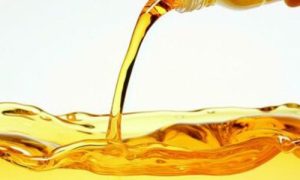Edible oil processors petition Treasury over import duty tax

Kenyan vegetable oil manufacturers have petitioned the Treasury to remove a newly imposed 10% import duty on crude palm oil, effective July 1, 2024. This tax has led to a significant increase in consumer prices, raising a 20-litre jerry can by over Sh400. The Edible Oil Manufacturers Association of Kenya argues that the tax, along with existing taxes totaling 32%, makes local products less competitive and threatens livelihoods. They urge the Treasury to reconsider or risk exacerbating the cost of living for many Kenyans.
Manufacturers of vegetable oils in Kenya have petitioned the Treasury to scrap the 10 percent import duty tax on imported crude palm oil that has raised the price of the commodity, significantly making life unbearable to a majority of Kenyans.
Billow Kerrow, the spokesman of the Edible Oil Manufacturers Association of Kenya, revealed on Wednesday that the association has written to the National Treasury to have the tax removed or risk making the locally made products lose their competitiveness.
“We have told them that this is unacceptable because they did not involve the industry before the tax was imposed. But we haven’t gotten any response,” said Mr Kerrow.
He noted that manufacturers and other stakeholders need to plan and that it is wrong for the government to ambush “us with taxes that are already too many and punitive.”
With the newly introduced tax, the price of the 20-litre edible oil jerry can that has been retailing at Sh3,800 has shot up by over Sh400 as manufacturers grapple with increased costs that have set the stage for higher consumer prices.
Mr Kerrow, the former Mandera Senator, is the chairman of the Darfords Industries Limited.
The import duty tax on crude palm oil, a key raw material for the manufacture of cooking oil, became operational on July 1, 2024.
This is after Kenya’s application to the Council of Ministers of East African Community (EAC) under the Common External Tariff to impose the import duty was approved and published in the EAC gazette notice of June 30, 2024.
To undo the tax, Kenya simply needs to write to the EAC Council of Ministers.
The approval saw Kenya join Uganda as the only EAC members implementing the tax even as local manufacturers questioned rationale of the decision given that Kenya fully imports crude palm oil.
Uganda imposed a 10 percent import duty on crude palm oil last year.
In Kenya, the tax is just one of the many imposed on the product, which is an essential household staple for millions of Kenyans.
The introduction of the import duty on crude palm oil increases the number of taxes imposed on the product to 32 percent.
The other taxes imposed on imported crude palm oil include the Value Added Tax (VAT) at 16 percent, the Import Declaration Fee (IDF) at 2.5 percent and the Railway Development Levy (RDL) at 2 percent.
There is also the Oil crops and nuts development (OCND) levy charged at the rate of 2 percent.
Mr Kerrow warns that unless the tax is removed, the local manufacturers will be left with no option but to cascade the costs to the consumers.
This is even as fears abound that the move will lock the product out of reach of the many, potentially threatening the livelihoods of Kenyans employed directly or indirectly in the sector.
Mr Kerrow notes that failure to abandon the tax will undo the steady price drops on vegetable oil and related products that Kenyans have been enjoying on a combination of the strengthening shilling and major source markets like Indonesia lifting caps on import quotas of crude palm oil.
“Things have become so expensive. We no longer export. The countries we used to export edible oil to like Congo DRC, Rwanda among others, are now importing directly from Malaysia and Indonesia at cheaper rates because our product is not competitive,” said Mr Kerrow.
“Abandoning this tax will cushion millions of Kenyan consumers, especially the vulnerable ones against imminent significant price hikes for these essential household products.”
Data shows that it is easier to produce in Ethiopia and Egypt among others as Kenya loses her competitiveness in manufacturing to the neighbouring countries.
Cooking oil is an important component in the preparation of food and the production of essential household products like bread, margarine, soap, and some cosmetics with glycerin.
The effect of the new tax has sectoral linkages specifically on products that depend on local processing of crude palm oil.
The implication of the tax, according to the manufacturers, will see the price of a 400 gram loaf of bread increase by about Sh10 in the coming days compared to the current price of Sh65 in supermarkets and other retail outlets.
The ripple effects of the tax extend beyond the kitchen, affecting other essential products derived from crude palm oil with the price of long bar soap likely to escalate from the current Sh200 to Sh350 and 250 grams of margarine to cost about Sh360 from Sh160.
“Such price hikes will disproportionately affect the most vulnerable members of society, exacerbating the already high cost of living, plunging millions into deeper financial distress,” says Mr Kerrow.
While the tax seeks to promote the government’s own agenda of promoting the growth of the local edible oil production industry, Kenya unlike Uganda, does not grow palm oil trees that are critical in the production of edible oils.
Instead, Kenya imports crude palm oil largely from Indonesia and Malaysia, the world’s leading producers of crude palm oil at a combined 85 percent, meaning the cost of the commodity will escalate.
This is notwithstanding that the edible oils sector is a significant contributor to Kenya’s economy, directly employing approximately 15,000 individuals and indirectly supporting the creation of over 30,000 jobs.
Source Link : https://www.businessdailyafrica.com/bd/economy/edible-oil-processors-petition-treasury-over-import-duty-tax-4709318

















